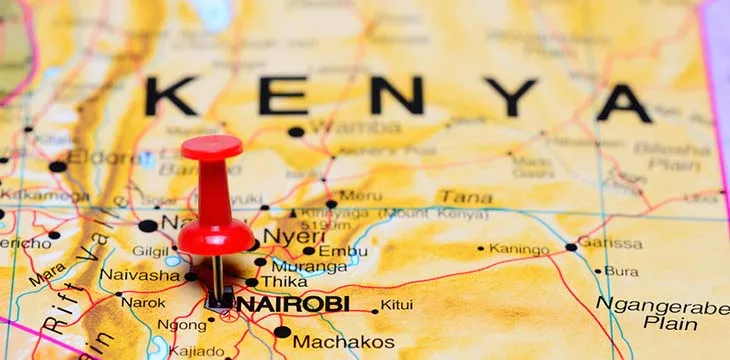The Bitcoin Bridge: A passionate discussion about IPv6 with Prof. Sureswaran Ramadass
When it comes to the passion for IPv6 technology, there may be few people who can match Sureswaran Ramadass. It is only to be expected; he is, after all, chairman of the IPv6 Forum in Malaysia and professor emeritus at the Malaysia University of Science and Technology.
Prof. Ramadas enters a room specially designed for video conferencing, and takes the opportunity to remotely adjust the camera’s framing. This was clearly a man who is accustomed to technology and who has spent his career stepping in to advance human technology to new heights.
In just a few minutes, the interview is underway, with the professor talking to Jon Southurst on The Bitcoin Bridge on the topic he knows best.
Makes Asia’s biggest push
Prof. Ramadas shares that his background has always been technical. Years ago, when he began his Ph.D. work, one of the main founders of IPv6 in the region encouraged him to focus on the technology and help push it in the region.
Since he had virtually no experience with IPv6 technology, the professor said he initially had concerns, but that he eventually entered the world that would be the center of his career for years to come.
“What we did, we made IPv6 one of the main advances to get out of Asia,” said Prof. Ramadass. “So while many Internet technologies came out of Europe or the United States, we wanted IPv6 to be powered by Asia.”
Looking at how far the technology has come, the professor says that they have been quite successful in their initiative. He says that Asian countries took the lead in IPv6 – and they still do.
Another marker of success for Prof. Ramadas is the growing acceptance of IPv6. He explains that people are beginning to understand that IPv6 does not compete with IPv4, and that it is simply a growth phase of the technology. One factor that is helping to push the new technology is that it is free while IPv4 is starting to get expensive due to its scarcity.
“It’s pretty obvious which side to choose,” said Prof. Ramadass. “You get this new commitment, new organizations come in. It’s the right choice for it.”
“It’s just for you for the rest of your life”
The transition to the new era of the Internet also requires a change in people’s mindsets. Prof. Ramadas compares it to coders who learn a new programming language.
“You have to clear your mind of the old programming paradigm and think of the new programming paradigm,” he explained. “Same with IPv4 or IPv6. IPv4 is a bit more simplified, straightforward in the sense of implementation. IPv6 has many more options.”
Of course, these options refer to IPv6’s larger address pool. Unlike IPv4, whose options are diminishing, IPv6 has exponentially more available addresses. In fact, there are enough alternatives that make it possible to give everyone in the world – for generations to come – their own unique address.
“I could now have an IPv6 global address, and this time it may belong to me,” said Prof. Ramadass. “So wherever I go, no matter what company I move to, it’s almost like someone says, ‘I give you your life.’ Lifelong IPv6 address, and this is your life. No one can take it from you, and it’s just for you for the rest of your life. Isn’t that cool? ”
A progressive internet economy
When it comes to the internet economy, IPv6 Forum Education Chairman is nothing short of astonishing. He remembered a time not so long ago when it was not so easy to manage finances.
“I remember the day I went to the United States to study. We had to get traveler’s checks, “shared Prof. Ramadas with The Bitcoin Bridge. “We had to spend a lot of money. We had to put our names on it and carry it to a bank in the US, and then the guy would confirm it and then translate it into cash. And if those checks were stolen? Guess what, you lost the money. ”
Another thing the professor is highly praised for is the potential of digital currency. He believes that digital currency can bring a revolution to the world of internet financing, and make it more secure. However, he explained that people need to start seeing Bitcoin as more than just a trading alternative and look at the bigger picture of the cryptocurrency itself.
“I feel it has brought its value to the world. It’s just that people need to know how to use it, how to value it, and how to carry it forward,” said Prof. Ramadass.
In response, Southurst remarked: “It’s a very similar problem, isn’t it? It’s just about educating and getting people to change their habits.
Watch the full engaging interview with Prof. Sureswaran Ramadass on The Bitcoin Bridge with Jon Southurst. Watch the full interview on the CoinGeek YouTube channel.
See: BSV Global Blockchain Convention presentation, IPv6-bsed 5G / 6G, IoT and Blockchain
New to Bitcoin? Check out CoinGeeks Bitcoin for beginners section, the ultimate resource guide for learning more about Bitcoin – as originally envisioned by Satoshi Nakamoto – and blockchain.


